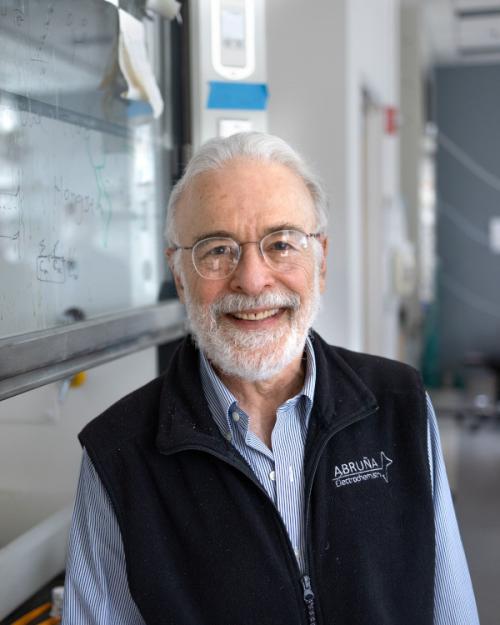Chemist Geoffrey Coates will be part of the $120 million, five-year second phase of the Joint Center for Energy Storage Research (JCESR), an interdisciplinary project aimed at realizing next-generation batteries.
Coates and his team will investigate the polymerics that go into batteries.
“By designing and building new polymers with molecular precision, we will enable
new batteries that charge faster, last longer and are safer than current technologies,” said Coates, the Tisch University Professor in the Department of Chemistry and Chemical Biology.
The Coates Research Group focuses on the development of new synthetic strategies for producing polymers of defined structure. The broader impacts of this research include benign polymers and chemical synthesis, the use of renewable resources, and materials for safe and economical energy storage and conversion.
A U.S. Department of Energy (DOE) Energy Innovation Hub, JCESR is a major partnership that integrates researchers from many disciplines to overcome scientific and technical barriers and create new energy-storage technology. Led by the DOE’s Argonne National Laboratory, JCESR partners include national leaders in science and engineering from academia, the private sector and national laboratories.
The project’s first five years have produced more than 380 published papers, noted JCESR director George Crabtree.
“The knowledge we’ve gained has introduced new approaches to battery research and development and will guide our research in transformative materials for next-generation batteries for many years,” he said.
This story also appeared in the Cornell Chronicle.




